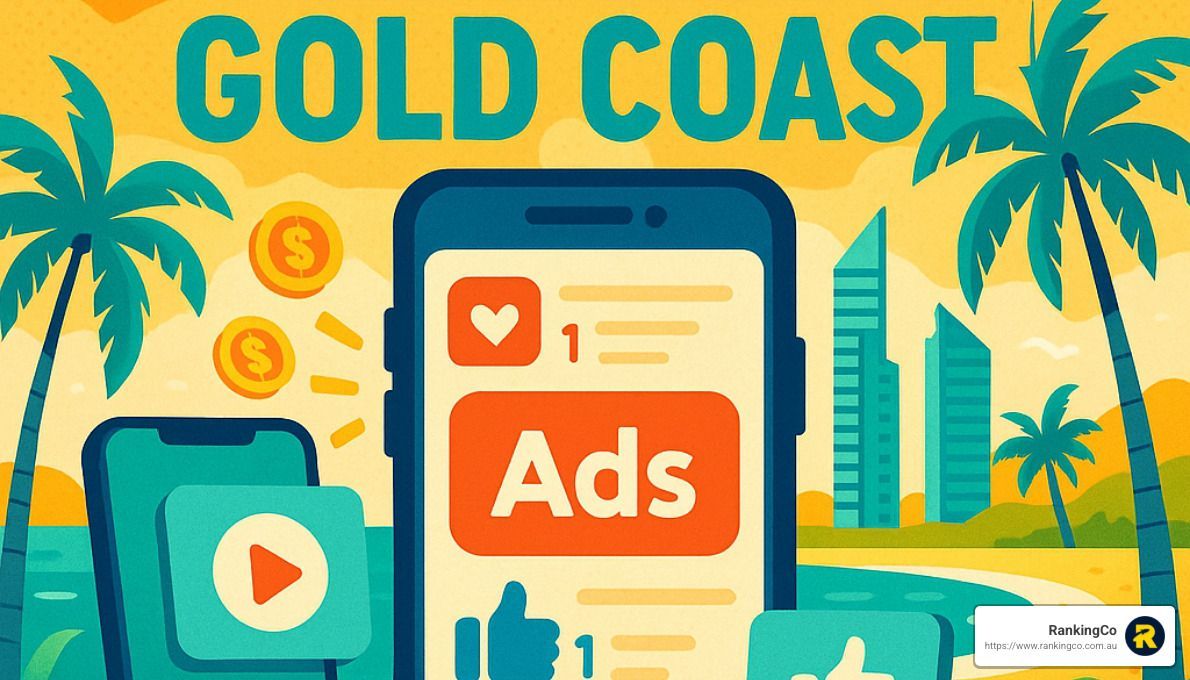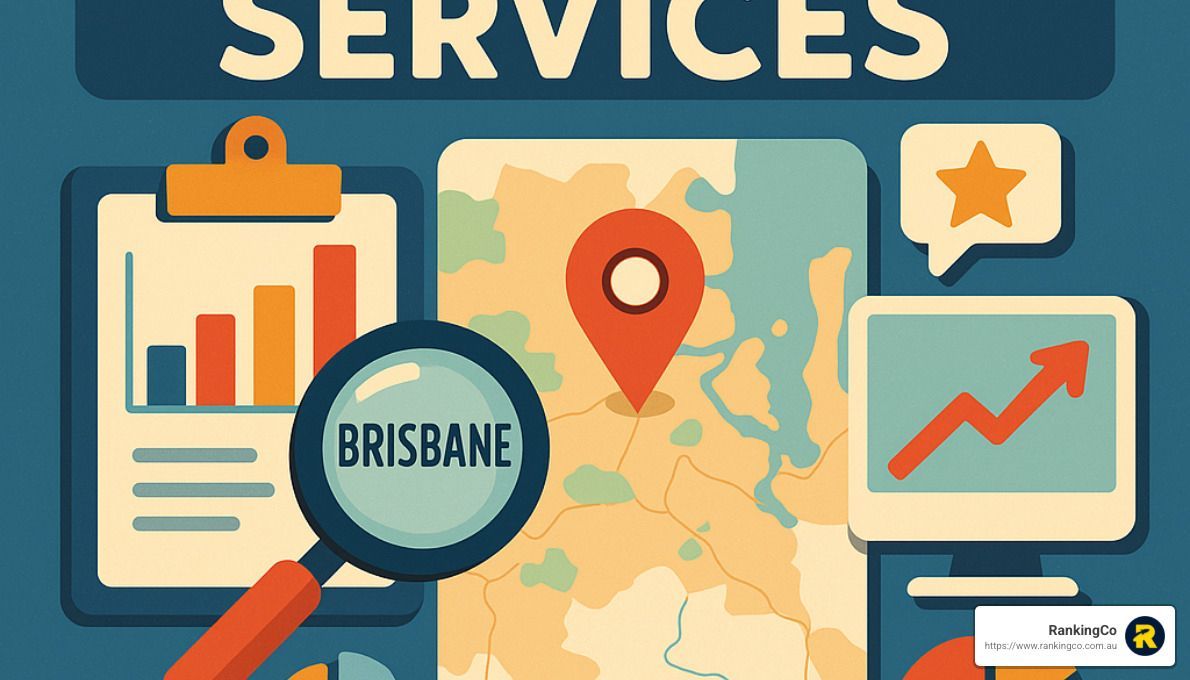Crafting the Perfect SEO Strategy: A Step-by-Step Guide
SEO strategy is the cornerstone of getting your business noticed online. It's the map that guides you in creating content, optimising webpages, and engaging with your audience—all to climb higher in search engine rankings.
Here's a quick overview of what an SEO strategy involves:
- Keyword research to understand what your audience is searching for.
- On-page optimisation to ensure your site meets search engine standards.
- Creation of valuable content that engages users and satisfies their search intent.
- Technical improvements to make your site fast and friendly.
- Building high-quality backlinks to increase your authority.
Crafting an effective SEO strategy is essential for enhancing user experience. A well-planned approach ensures your website is user-friendly and provides what your visitors are looking for, ultimately converting clicks into customers. Delivering a seamless online experience isn't just beneficial for users; it's what search engines reward.
I'm Amber Porter, CEO and digital marketing expert at RankingCo, where we focus on crafting custom SEO strategies. With years of experience in ensuring small and medium-sized businesses not only survive but thrive digitally, my goal is to make SEO accessible and effective for you. Let's dive deeper into understanding how you can harness the power of a sound SEO strategy to boost your online presence.
Understanding SEO Strategy
To craft a successful SEO strategy, you'll need to focus on three key components: keyword research, content creation, and internal linking. Each plays a vital role in improving your website's visibility and attracting organic traffic.
Keyword Research
Keyword research is all about understanding what your audience is searching for. It's the foundation of your SEO efforts. Start by using tools like Google Suggest or Ubersuggest to generate a list of relevant keywords. These tools help you find phrases that people are actually searching for, giving you insight into their interests and needs.
Long-tail keywords are particularly valuable. They may have lower search volumes, but they're often less competitive and more specific, making it easier for your site to rank. For instance, instead of targeting the broad term "coffee," you might focus on "best organic coffee beans in Brisbane."
Content Creation
Once you have your keywords, it's time to create content that addresses your audience's queries. The key is to write for humans first and search engines second. Your content should be helpful, engaging, and informative. By answering your audience's questions and providing value, you not only attract visitors but also encourage them to stay longer on your site.
Remember to include your target keywords naturally throughout your content. This helps search engines understand what your page is about. Also, don't forget to optimise your images with alt text, including relevant keywords to improve accessibility and search engine ranking.
Internal Linking
Internal linking is like creating a roadmap for both users and search engines. By linking related pages within your site, you help visitors find more of your content and signal to search engines that your pages are interconnected and authoritative.
For example, if you have a blog post about "organic coffee benefits," link it to another page on "where to buy organic coffee in Brisbane." This not only improves user navigation but also helps search engines index your content more effectively. As a result, your site becomes more authoritative and likely to rank higher in search results.
By focusing on keyword research, content creation, and internal linking, you lay the groundwork for a robust SEO strategy. These elements work together to improve your site's visibility and user experience, setting the stage for increased traffic and engagement.
How to Create an Effective SEO Strategy
Creating an effective SEO strategy requires a structured approach. This involves benchmarking, competitor analysis, and goal setting. Let's explore each of these key components to ensure you’re on the right path.
Benchmarking
Benchmarking is the process of measuring your current performance against industry standards or competitors. It helps identify where you stand and what improvements are needed.
- Start by assessing your current SEO metrics: Look at your website's organic traffic, bounce rate, and search rankings. Tools like Google Analytics can provide detailed insights into these metrics.
- Compare your performance with industry standards: Understanding the average performance metrics in your industry can help set realistic goals.
- Identify areas for improvement: Benchmarking highlights gaps in your current strategy, allowing you to focus on areas that need attention.
Competitor Analysis
Knowing what your competitors are doing can give you a competitive edge. Competitor analysis involves examining their strategies to find opportunities for your own growth.
- Identify your main competitors: Use tools like Semrush to uncover who your competitors are and what keywords they rank for.
- Analyse their content and keywords: Look at the type of content they produce and the keywords they target. This can reveal gaps in your own content strategy.
- Evaluate their backlink profile: Understanding where your competitors get their backlinks can help you find potential link-building opportunities.
- Assess their on-page and technical SEO: Reviewing their website structure and on-page elements can provide insights into what works well in your industry.
Goal Setting
Setting clear SEO goals is crucial for measuring success and staying focused.
- Define specific, measurable, achievable, relevant, and time-bound (SMART) goals: For example, aim to increase organic traffic by 20% in six months.
- Align your goals with business objectives: Ensure your SEO goals support your overall business goals, such as increasing sales or brand visibility.
- Regularly review and adjust your goals: As you gather more data and insights, be prepared to refine your goals to reflect changing priorities and market conditions.
By focusing on benchmarking, competitor analysis, and goal setting, you build a solid foundation for a successful SEO strategy. These steps not only guide your efforts but also ensure that your strategy aligns with your business objectives.
Next, we’ll explore the key components of a successful SEO strategy, including on-page SEO, technical SEO, and off-page SEO.
Key Components of a Successful SEO Strategy
A successful SEO strategy hinges on three key components: on-page SEO, technical SEO, and off-page SEO. Each plays a vital role in ensuring your website ranks well and attracts organic traffic.
On-Page SEO
On-page SEO is all about optimising the content and elements on your website. This ensures that both users and search engines can easily understand and steer your site.
- Content Optimisation: Create high-quality, relevant content that answers your audience's questions. Use keywords naturally in your text, headings, and meta tags.
- Title Tags and Meta Descriptions: Craft compelling title tags and meta descriptions that include your target keywords. These elements help improve click-through rates from search engine results pages (SERPs).
- Internal Linking: Use internal links to guide visitors to related content on your site. This not only improves user experience but also helps search engines crawl your site more effectively.
- Image Alt Text: Ensure all images have descriptive alt text. This improves accessibility and provides another opportunity to include keywords.
Technical SEO
Technical SEO focuses on the backend elements of your website that affect search engine crawling and indexing.
- Site Architecture: Ensure your site has a logical structure. A well-organised site makes it easier for search engines to crawl and index your pages.
- Mobile-Friendliness: With more users accessing websites via mobile devices, ensure your site is mobile-friendly. Google prioritises mobile-friendly sites in its rankings.
- Page Speed: Fast-loading pages improve user experience and are favoured by search engines. Compress images and use caching to improve load times.
- Structured Data: Implement structured data (schema markup) to help search engines understand your content better. This can improve your site's visibility in SERPs through rich snippets.
Off-Page SEO
Off-page SEO involves activities outside your website that impact your site's authority and reputation.
- Backlink Building: Acquire high-quality backlinks from reputable sites. Backlinks signal to search engines that your content is credible and valuable.
- Social Media Engagement: Engage with your audience on social media to increase brand awareness and drive traffic to your site.
- Brand Mentions: Encourage mentions of your brand across the web. Even unlinked mentions can contribute to your site's authority.
By focusing on these key components—on-page SEO, technical SEO, and off-page SEO—you create a comprehensive SEO strategy that improves your site's visibility and performance. Next, we'll dig into the implementation of your SEO strategy, covering content optimisation, backlink building, and performance tracking.
Implementing Your SEO Strategy
Once you've laid the groundwork, it's time to put your SEO strategy into action. This involves three main areas: content optimisation, backlink building, and performance tracking.
Content Optimisation
Content is king, but only if it's optimised. Start by ensuring your content is relevant and valuable to your audience. Use tools like Ahrefs or Semrush to identify and integrate long-tail keywords naturally into your text. Write for humans first and search engines second.
- Headings and Meta Tags: Use headings (H1, H2, H3) to structure your content. Include keywords where appropriate, but keep it natural. Craft compelling meta descriptions to improve click-through rates.
- Images and Alt Text: Don't overlook images. Use descriptive alt text to make your content accessible and to improve your chances of appearing in image search results. Compress images to improve page speed, which is crucial for user experience and SEO.
- Internal Links: Create a network of internal links to guide users and search engines through related content. This not only helps with navigation but also boosts the SEO value of your content.
Backlink Building
Backlinks are essential for off-page SEO. They signal to search engines that your site is authoritative and trustworthy.
- Earn Backlinks: Create content that others want to link to. This could be a comprehensive guide, a unique case study, or a thought-provoking blog post. The key is to offer value.
- Build Backlinks: Reach out to other site owners or editors to request links. Tools like Semrush's Link Building Tool can help identify prospects. Personalise your outreach to increase your chances of success.
- Local Listings: For businesses in Brisbane or other locations, get listed in local directories. This is a quick win for backlinks and improves local SEO.
Performance Tracking
Tracking your performance is crucial to understanding the effectiveness of your SEO strategy. Use tools like Google Analytics and Google Search Console to monitor key metrics.
- Organic Traffic: Keep an eye on the organic traffic your site receives. This indicates how well your content is performing in search engine results.
- Keyword Rankings: Regularly check your keyword rankings. Adjust your strategy if you notice significant changes, whether positive or negative.
- Backlinks and Authority: Monitor the number and quality of backlinks your site receives. Tools like Ahrefs can provide detailed reports on your backlink profile.
By focusing on content optimisation, building quality backlinks, and tracking your performance, you'll be well on your way to implementing a successful SEO strategy. Next, we'll address some frequently asked questions about SEO strategy to further improve your understanding.
Frequently Asked Questions about SEO Strategy
What is an SEO strategy?
An SEO strategy is a plan designed to improve a website's visibility in search engine results, increasing organic traffic. It's all about making your content easy to find and valuable to those searching for it. A well-crafted strategy not only helps your content rank higher but also ensures it reaches the right audience.
Think of it like this: If your website is a book, an SEO strategy is the blueprint that ensures it's placed on the right shelf in a library, where the most interested readers will find it.
How long does it take to see results from an SEO strategy?
SEO is a marathon, not a sprint. Typically, it can take anywhere from 6 months to a year to see noticeable results. This timeline depends on various factors like your site's current status, the competitiveness of your industry, and the quality of your SEO efforts.
Search engine indexing is a crucial part of this process. When you optimise your site, search engines need time to crawl and index your content, which affects how quickly your changes impact search engine results. Regular performance assessments using tools like Google Analytics can help track progress and adjust strategies as needed.
What are the types of SEO?
There are three main types of SEO, each playing a vital role in a comprehensive SEO strategy:
- On-page SEO: This involves optimising the content on your website. It includes using relevant keywords, crafting compelling meta tags, and ensuring a good user experience with fast-loading pages and mobile-friendly designs.
- Off-page SEO: Focuses on activities outside your website that affect your rankings. This primarily includes building quality backlinks from reputable sites. The more high-quality sites that link to yours, the more search engines see your site as trustworthy.
- Technical SEO: Ensures that your website is easy for search engines to crawl and index. This involves optimising site speed, fixing broken links, and ensuring your site is secure and mobile-friendly.
By understanding these types of SEO and how they work together, you can create a robust SEO strategy that improves your site's visibility and drives organic traffic.
Partner with a Team That Understands Your Goals
Crafting a successful SEO strategy is essential for any business looking to thrive in the digital landscape. At RankingCo, we understand the intricacies of digital marketing and how to leverage local SEO to help small businesses in Brisbane and beyond.
Local SEO is a game-changer for businesses with a physical presence. It's about getting your business noticed by people in your area who are searching for your products or services. With most consumers using local search to find nearby businesses, optimising for local SEO can significantly boost your visibility and attract more customers.
Our approach at RankingCo is to integrate advanced AI technologies into our digital marketing strategies. This allows us to accurately analyse market trends and craft effective campaigns custom to your business's unique needs. We focus on delivering results that not only improve your search engine rankings but also align with your business goals.
By partnering with us, you gain access to a team that is dedicated to staying ahead of the curve. We continuously adapt our strategies to meet the ever-changing demands of the digital world, ensuring your business remains competitive.
Ready to lift your business with a custom SEO strategy? Visit our SEO services page to learn more about how we can help you achieve your digital marketing goals.















